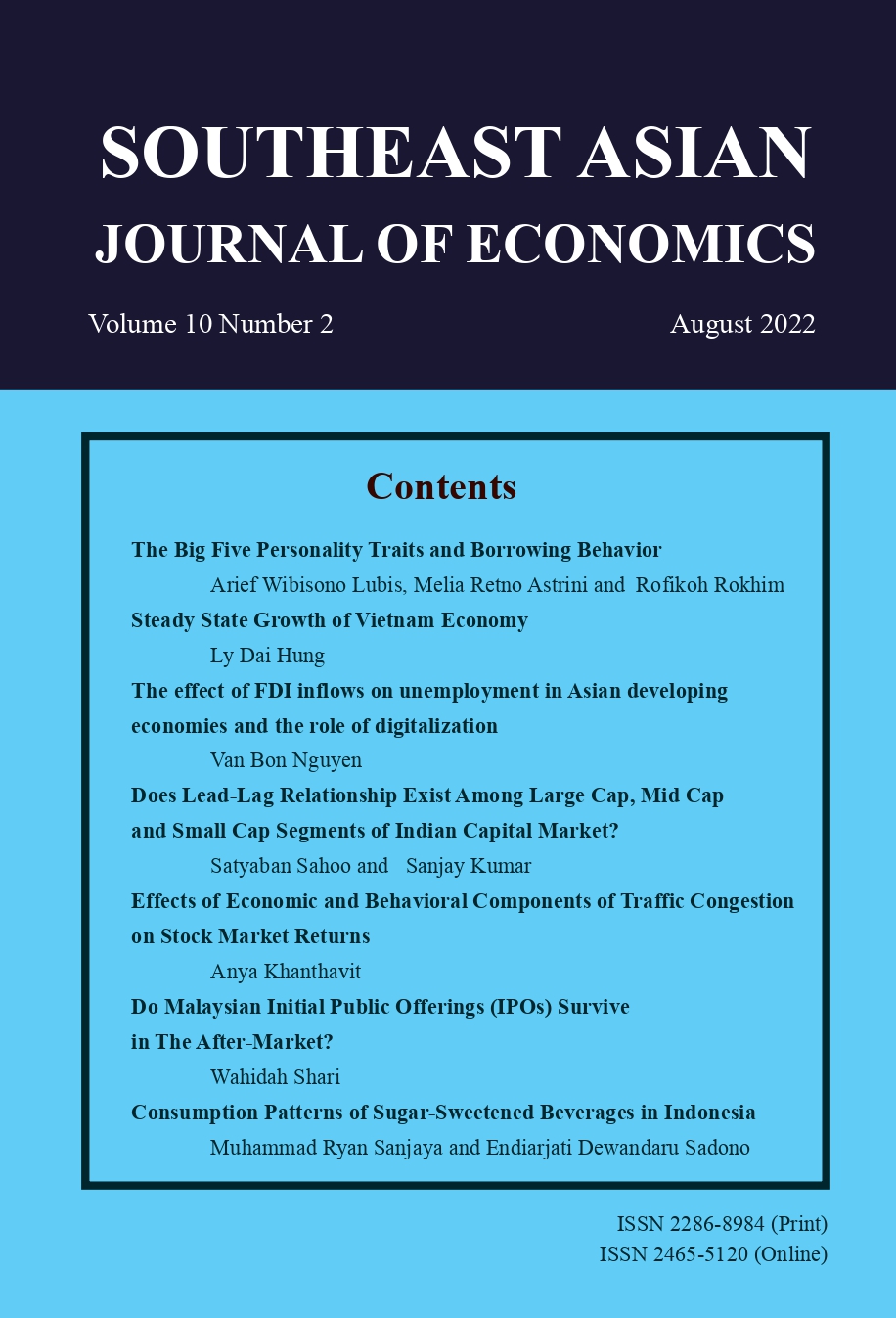The effect of FDI inflows on unemployment in Asian developing economies and the role of digitalization
Keywords:
FDI, digitalization, unemployment, Asian developing economies, difference GMM Arellano-Bond estimator, PMG estimatorAbstract
Asian developing countries make more effort to attract additional foreign direct investment (FDI) inflows to enhance economic growth and create more jobs. The FDI – unemployment relationship is a hotly debated topic between economists and policymakers. In the context of globalization with the high development level of the Internet, does digitalization contribute to this relationship? For the answer, the study employs individuals using the Internet and fixed broadband subscriptions as a proxy for digitalization to empirically examine the effects of FDI, digitalization, and their interaction on unemployment for a group of 32 Asian developing countries over the period 2002 – 2020. It applies the two-step and one-step difference GMM estimators and the PMG estimator. The results show that FDI decreases while digitalization increases unemployment, but their interaction reduces it. Furthermore, economic growth, trade openness, and governance are significant determinants of unemployment in these countries. The study suggests some implications for governments in Asian developing economies to develop information technology and the Internet to receive more FDI inflows and create more jobs.
Downloads
Published
How to Cite
Issue
Section
License

This work is licensed under a Creative Commons Attribution-NonCommercial-NoDerivatives 4.0 International License.
The submission of a manuscript implies that the paper is an original work and has not been published elsewhere. The author(s) authorize the journal to reproduce or distribute the paper in printed or other electronic forms.







